5Revealing Daesoon Truth in Compliance with Sangje’s Divine Command
- Laying the Groundwork for a Religious Order through Haewon Sangsaeng
Doju, who had received the sealed chest of documents on the 15th day of the 1st lunar month of the Gimi Year (1919), spent the next few years unceasingly performing Holy Works without any rest while unraveling Degree Numbers (Dosu) left behind by Sangje up until he founded Mugeukdo in the Eulchuk Year (1925). Holy Works performed at this time included the Holy Work with the Transformation Chest (1919-1920), the 100-Day Degree Number at Daewon-sa Temple (1921), the Holy Work of Enshrining Sangje’s Holy Skeletal Remains (1921-1922), and a series of special Holy Works: the Degree Number of Transformation, the Degree Number of the Altar, and the Degree Number of a Tributary Gift (1923-1924). Also, in the Gyehae Year (1923), he prepared the organization of the religious order and made prophetic elucidation regarding the founding of Mugeukdo by issuing the Decree (Jeongyo). Through these acts, Doju paved the way for the eventual founding of the order and established the roots for the religious laws and dharmic logic of Daesoon Truth. - Enshrining the Transformation Chest and Performing Holy Works
Doju performed Holy Works during the Gimi Year (1919) at the memorial house in Tongsa Hamlet. At that time, Lady of Seondol told Doju that the ‘Transformation Chest (dun-gwei) is an agent of re-creation and changes of the Degree Number of Heaven and Earth.’ The Transformation Chest was a chest that Sangje used along with an Apothecary Cabinet for carrying out Reordering Works after opening Donggok Clinic. The chest was later stored in the clinic.
On the 4th day of the 9th lunar month of that year, Doju had the Transformation Chest found and brought back to the memorial house in Tongsa Hamlet. Then he forwent sleep and rest to perform Holy Works day after day and night after night. - Revealing the Contents of the Reordering Work of the Transformation Chest
In the Gyeongshin Year (1920), Doju concentrated on Holy Works at the memorial house in Tongsa Hamlet without rest every day and night. Meanwhile, on the 17th day of the 2nd lunar month, the Transformation Chest opened by itself and the sound of thunder rang out from the spot where it had been enshrined. In the chest, there was a sheet of tiger skin and a painting of a half-bloomed chrysanthemum, and lining the inside were 24 dots of sheep’s blood and some phrases: the ‘Historical Record in the Wu River (ogang-rok),’ the ‘Eight Gates Transformation (palmun-dungap),’ and the ‘Tongue Gate (seol-mun).’
Doju moved the Transformation Chest to Bangu Pavilion in Haman and finished a Holy Work there. After that, the Transformation Chest was taken away by an apostate. The other disciples felt deeply sorry about this, but Doju remarked, “It is all right as that was used for the Degree Number corresponding to that time. The character ‘dun (遁)’ in Transformation Chest (dun-gwei 遁櫃) can mean ‘running away.’”
The Transformation Chest
The Transformation Chest was created and stored away by Sangje when he opened the Donggok Clinic in 1908. Sangje wrote ‘the Eight Gates Transformation (palmun-dungap)’ inside the chest, branded ‘the Tongue Gate (seol-mun)’ on top of it, and then dabbed 24 dots around those characters in red. The chest was then placed in the clinic. This Transformation Chest was passed on to Doju in 1919, and he used it in a Holy Work. The chest disappeared after that Holy Work, but was recovered by Dojeon in 1984. He renamed it the ‘Sacred Chest (seong-gwei).’
- Preaching at Gulbawi Rock
Doju reached Gulbawi Rock of Byeon Mountain in Buan County. He practiced a Holy Work there and preached the truth revealed through Sangje’s Great Itineration. Thereupon, the crowd that came to follow him numbered over 200. - Performing a Holy Work at Daewon-sa Temple
“This is the very place where Sangje judged the Great Divine Beings of Heaven and Earth. I have released them and also their energy which was still attached to this place.” - Enshrining the Holy Skeletal Remains of Sangje and Performing a Holy Work
On the 5th day of the 9th lunar month of the Shinyu Year (1921), Gwon Tae-Ro and four others were ordered by Doju to locate the holy skeletal remains of Sangje in Donggok Valley and bring them to the memorial house in Tongsa Hamlet. After enshrining the remains, Doju held devotional offerings each day and night as he performed a Holy Work. This concluded with another devotional offering held on the day that Sangje descended into the world. At that time, Doju said the following: “時時黙誦空山裡 夜夜閑聽潛室中 分明造化成功日 堯舜禹王一切同” (A recitation was silently made in an empty mountain continually, and a sound was leisurely heard in a quiet room every night. When it comes to the day on which creation will be successfully realized, the Emperors Yao, Shun, and Yu will all be as one.)
- Issuing the Decree (Jeongyo)
On the 23rd day of the 6th lunar month of the Gyehae Year (1923), Doju remarked, “This new year is the Gyehae Year (1923), the start of a new cycle of Won (4,617 years) wherein many benefits are present” and then declared the ‘Decree.’
The ‘Decree’ revealed the flow of the Degree Numbers (Dosu) of Heaven and Earth through the Dao of saints and sages which had emerged throughout history. Ultimately, it implies that a new Great Dao would prevail and bring salvation to all sentient beings. Along with this, Doju created positions such as the Juseonwon (Chief Secretary) and the Juseonwonbo (Assistant Secretary) to prepare the organization for spreading the Great Dao.
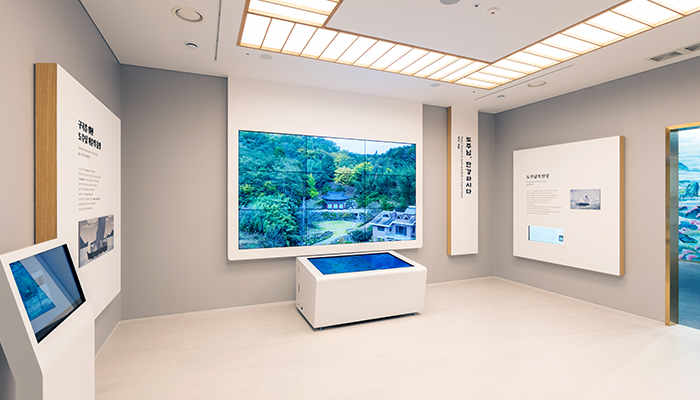
1Doju’s Descent and Birth
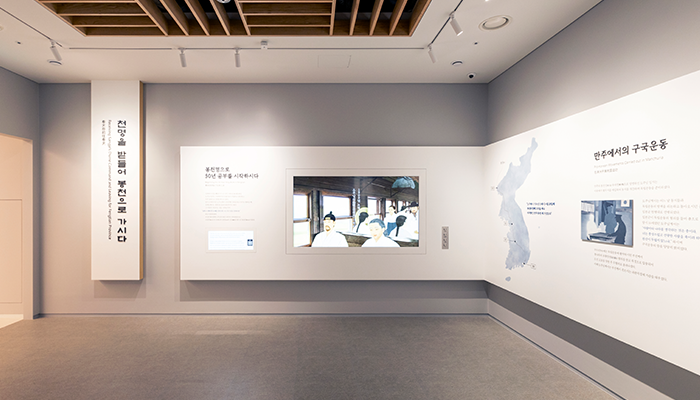
2Receiving Sangje’s Divine Command and Leaving for Fengtian Province
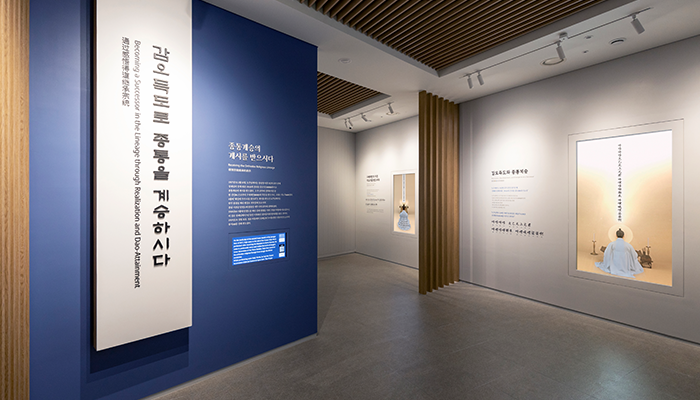
3Becoming a Successor in the Lineage through Realization and Dao-Attainment
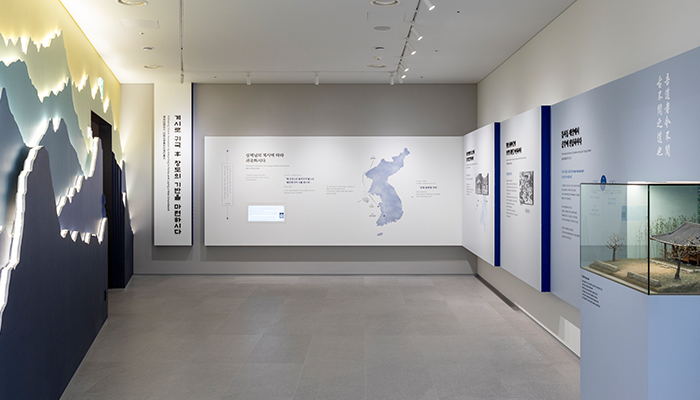
4Following Divine Revelation by Returning to Korea and Laying a New Groundwork
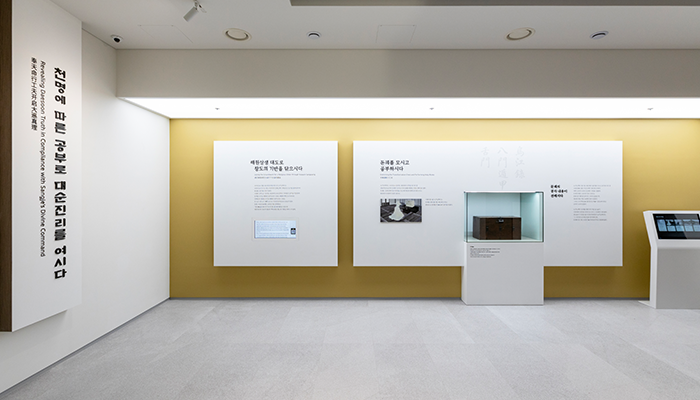
5Revealing Daesoon Truth in Compliance with Sangje’s Divine Command
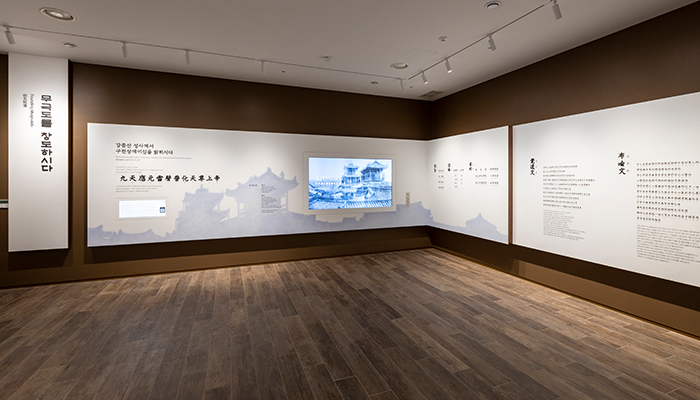
6Founding Mugeukdo
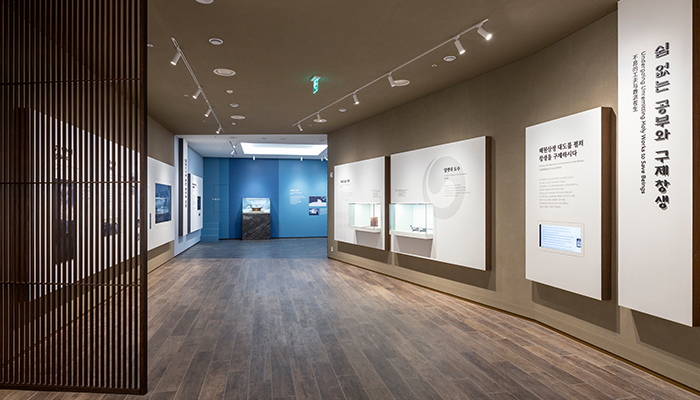
7Undergoing Unremitting Holy Works to Save Beings
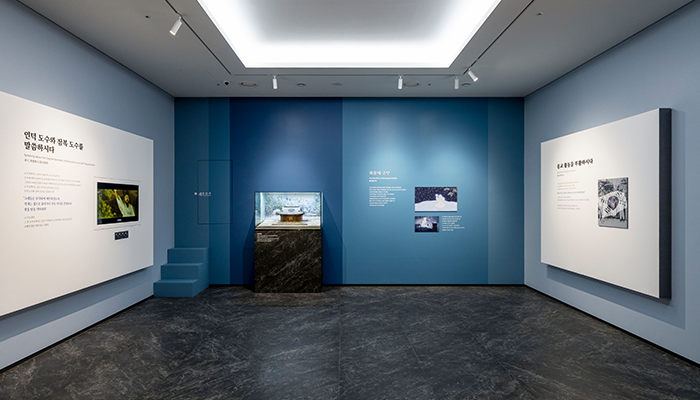
8The Holy Work at Hoeryong-jae Pavilion
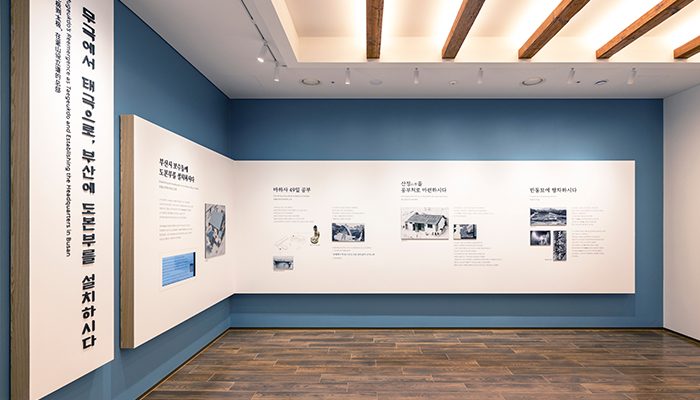
9Mugeukdo’s Reemergence as Taegeukdo and Establishing the Headquarters in Busan
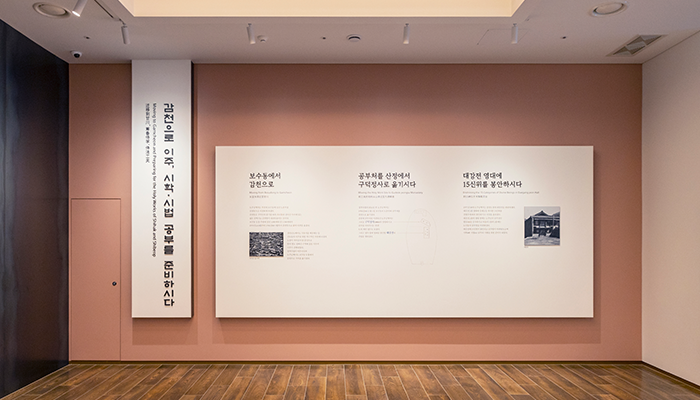
10Moving to Gamcheon and Preparing for the Holy Works of Shihak and Shibeop
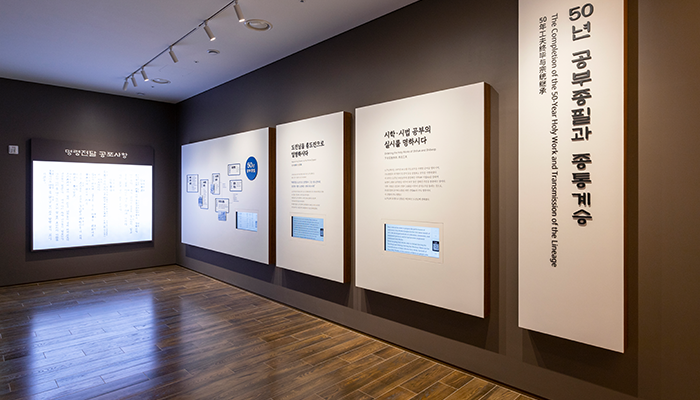
11The Completion of the 50-Year Holy Work and Transmission of the Lineage



